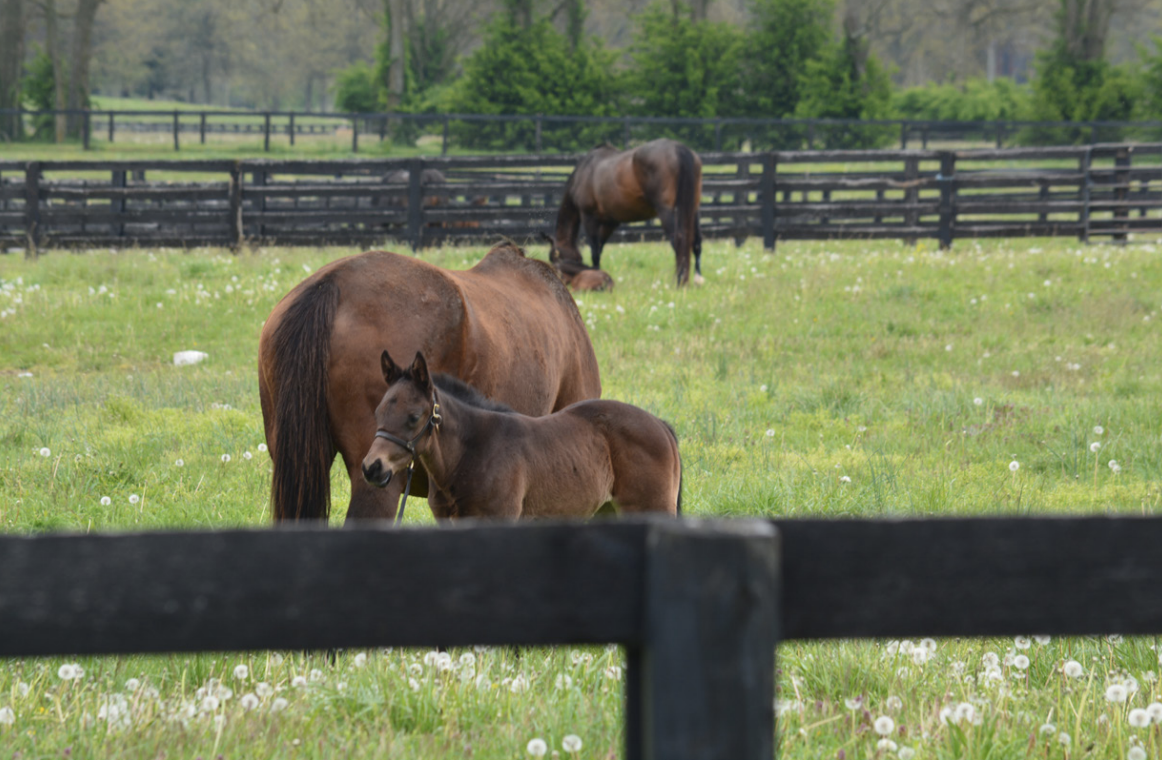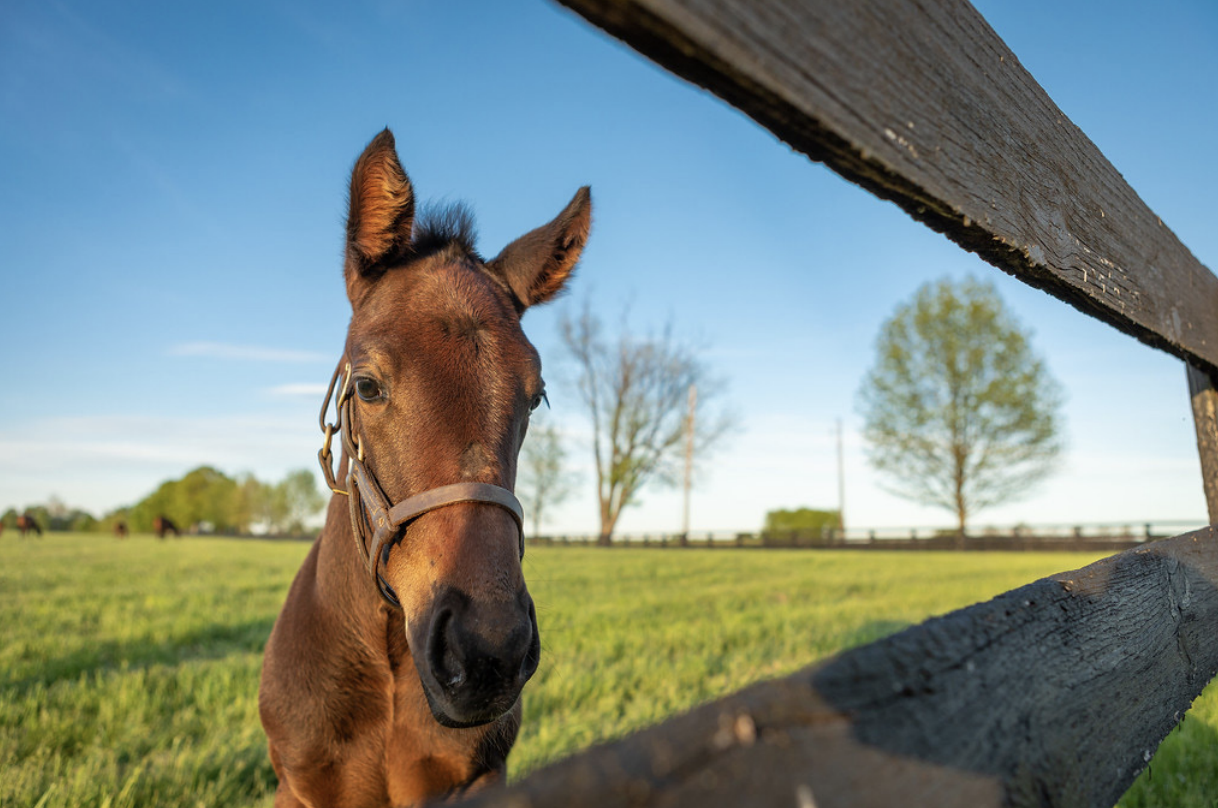Zero confirmed equine lepto abortions, A 30-year first, demonstrates power of research leading to a successful vaccine
According to information compiled by the University of Kentucky Veterinary Diagnostic Laboratory, the 2019-2020 reproductive season saw something that hasn’t been seen for at least 30 years, a season without one confirmed equine leptospirosis abortion in Kentucky’s Bluegrass region.
 The milestone wasn’t a happy accident, but rather a result of work amongst many people at UK and within the equine industry, said Craig Carter, DVM, PhD, Dipl., ACVPM, FNAP, director and professor of epidemiology at the UK VDL. The outcome of this collaboration was a licensed leptospirosis vaccination introduced in 2015 by Zoetis.
The milestone wasn’t a happy accident, but rather a result of work amongst many people at UK and within the equine industry, said Craig Carter, DVM, PhD, Dipl., ACVPM, FNAP, director and professor of epidemiology at the UK VDL. The outcome of this collaboration was a licensed leptospirosis vaccination introduced in 2015 by Zoetis.
While assessing the loss to other states is impossible, the UK VDL estimates that the disease cost Kentucky’s Bluegrass Region a total of $102 million in losses from 1993 to 2012, with an average loss of $3-5 million each year.
Leptospirosis is a bacterial infection that can lead to abortion, chronic uveitis – also known as moon blindness – or kidney failure in horses. It is a zoonotic disease, which means it can also infect humans, as well as pets and other livestock. It is a disease found worldwide, especially in developing countries. The bacterium thrives in wet climates, so horses exposed to standing water, flooding, wetlands, streams or ponds have a greater likelihood of coming into contact with and being infected by it.
“In the midst of all the COVID-19 chaos and stress, I was thrilled with the great news presented to me by Dr. Jackie Smith, UKVDL epidemiologist, that our lab did not confirm any cases of equine leptospiral abortion for the 2019-2020 reproductive season,” said Carter. “From everyone here at the UKVDL, our national leptospirosis study team, and horse owners everywhere, we thank Zoetis for their efforts to develop, test and market the first licensed leptospirosis vaccine for the horse. We are all humbled to have had a role in this process. Many thanks also to Dr. Jaci Boggs who led the vaccine project at Zoetis.”
The drive to develop a vaccine started in Kentucky with a national epidemiological study, funded by the Kentucky Thoroughbred Association/Kentucky Thoroughbred Owners and Breeders. That study, which took place between July 2010 and April 2011, looked at the sero-prevalance (level of exposure to pathogen in a population, as measured in blood serum) of leptospirosis among horses in the United States and Ontario, Canada. Researchers studied the residual sera from Equine Infectious Anemia submissions at 30 diagnostic laboratories. The study of 1,495 horses showed evidence that there was leptospirosis exposure and infection across 29 states in the U.S. as well as in Ontario, Canada, and that this exposure could lead to abortion in mares, clinical disease in horses and foals and could present a risk of zoonotic disease in farm workers and equine veterinarians.

Subsequently in 2014, Zoetis conducted a national study evaluating serum from more than 5,000 healthy horses nationwide. The study demonstrated that 75% of healthy horses in 18 states have been exposed to one or more types of leptospires. This in turn led to a commitment by Zoetis to create a licensed vaccine against leptospirosis for the horse. LEPTO EQ INNOVATOR® – introduced in 2015 – is the first and only equine vaccine to help prevent leptospirosis caused by L. pomona. Demonstrated safe for use in pregnant mares, LEPTO EQ INNOVATOR helps prevent leptospiremia caused by L. Pomona which could, but has not been demonstrated to, help reduce the potential risk of equine recurrent uveitis (ERU) infections, abortions or acute renal failure caused by L. Pomona.
“Equine leptospirosis is a costly, devastating and underdiagnosed disease that can affect the entire equine industry,” said Jaci Boggs, DVM, MS, DACVIM, senior equine technical services veterinarian at Zoetis. “We were honored to collaborate with industry leaders to further research the effects of Leptospirosis and introduce LEPTO EQ INNOVATOR which targets L. Pomona, the serovar most frequently associated with the disease in horses, providing horses the protection they need. It is exciting to see the power of research and the positive impact this vaccine has had in Kentucky’s Bluegrass Region this past season with zero confirmed equine leptospirosis abortions.”
According to Carter, there were many people involved in the research leading to the vaccine. Some of the key individuals included:
- Bill Bernard, DVM, Dipl. ACVIM, then an equine medicine specialist with Rood & Riddle Equine Hospital
- Boggs, who led the effort to develop, license and market the vaccine
- Stuart Brown, DVM, then with Hagyard Equine Medical Institute
- Carter, who in addition to the research work also served on the Zoetis leptospirosis vaccine committee
- Noah Cohen, VMD, PhD, Texas A&M University College of Veterinary Medicine
- Nancy Cox, PhD and dean of UK’s College of Agriculture, Food and Environment
- Erdal Erol, DVM, PhD, head of microbiology at the UKVDL
- Gloria Gellin, MPH, PhD student under Carter
- Deborah Maples, DVM, head of diagnostic services at the UK VDL
- Tom Riddle, DVM, Rood & Riddle Equine Hospital
- Jackie Smith, PhD, epidemiology section head at the UK VDL
- Meg Steinman, MPH, MT (ASCP), head of serology at the UK VDL
- David Switzer; then with KTA/KTOB, now retired.
Holly Wiemers, MA, APR, is the communications and managing director of UK Ag Equine Programs.
